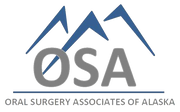4 Side Effects of Novocain® for Oral Surgery

Many people who have oral surgery will receive Novocain® to numb their mouth and protect them from pain and discomfort. The local anesthetic is commonly used for everything from fillings to tooth extractions and is considered a safe drug by the Food and Drug Administration for most patients. While common side effects include tingling and minor pain around the injection site, there are a few rare, serious reactions you need to watch out for.
Oral Surgery & Novocain: 4 Serious Side Effects
Breathing Problems
 An allergic reaction to Novocain during dental surgery can cause difficulty breathing and closing of the throat. In rare cases, Novocain can also cause central nervous system problems, which may include respiratory distress. If you have experienced difficulty breathing while having dental work or a medical procedure, tell your oral surgeon. If you feel symptoms while you are having a filling or extraction, say something immediately.
An allergic reaction to Novocain during dental surgery can cause difficulty breathing and closing of the throat. In rare cases, Novocain can also cause central nervous system problems, which may include respiratory distress. If you have experienced difficulty breathing while having dental work or a medical procedure, tell your oral surgeon. If you feel symptoms while you are having a filling or extraction, say something immediately.
Hives
Novocain can also cause hives in those who are allergic to it. Hives are characterized by swollen, red bumps in the mouth or on the skin that appear suddenly. Your oral surgeon is trained to recognize the signs of hives, so, if these plaques begin to form, they can take the appropriate measures to keep you safe right away. If you have had any allergic reaction to medications, tell your oral surgeon before scheduling a procedure.
Swelling
Rapid swelling at the site of a Novocain injection is another sign of an allergic reaction. Oral surgeons are trained to quickly recognize the signs of inflammation after administering a shot and will stop the procedure. After a careful evaluation, they will determine if another local anesthetic can be used or if further allergy testing is needed.
Dizziness
Central nervous symptoms like dizziness and nervousness soon after receiving a shot of Novocain are reliable signs of an adverse reaction. If you begin feeling anxious or have a rapid heartbeat right after receiving the local anesthetic, tell your oral surgeon, who can determine if you are worried about the treatment or need further examination.
While the above side effects are uncommon, it’s important to be aware of them, so your oral surgeon can help you avoid certain anesthetics and protect you from harm. To make an appointment with an oral surgery team that cares about your health and safety, call Oral Surgery Associates of Alaska in Anchorage at (907) 561-1430. For more information about their dental surgery services, visit their website.
About the Business
Have a question? Ask the experts!
Send your question

